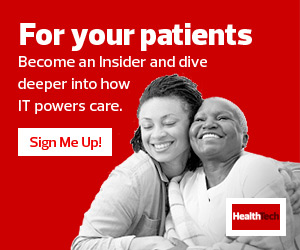Build Better Relationships with Physicians to Impact Satisfaction
For OrthoVirginia, the need for changes to its EHR became apparent when issues with the system began to reach the boardroom. “When you hear complaints at the board meeting, that is not good,” Terri Ripley, CIO for the focused orthopedic group, said at CHIME20.
At first, Ripley’s team attempted to implement a ticketing system for physicians to voice their issues and concerns, but engagement from the physicians simply wasn’t there, she said. With help from the KLAS Arch Collaborative in 2017, however, the Virginia-based health system began to get a real understanding of how its physicians truly felt by conducting an EHR satisfaction survey.
“We did our first survey, and what we found was that physicians were not as happy as we wanted them to be,” said Ripley.
Based on the results, Ripley and her team decided to create the Provider Support Specialist program, intended to drive proactive service while creating a relationship between the support specialists and the care providers themselves. Those relationships are proving to be the key to the program’s success.
READ MORE: Healthcare organizations continue to look for ways to EHRs work in their favor.
Create a Mold That’s ‘Plastic’
Dr. H.C. Eschenroeder Jr., chief medical information officer for OrthoVirginia, said at the conference that he initially had reservations about the program due to his own experience with orthopedic surgeons.
“Orthopedic surgeons tend to be fixers — you have to understand the type of people that you are dealing with,” said Eschenroeder. “But the provider support specialists almost had an innate sense as to how to approach these people.”
Today, the specialists have a real sense of purpose in the organization, Ripley said. They’re helping to complete a variety of EHR support tasks — from onboarding and training clinicians on new system functionalities to working directly with OrthoVirginia’s EHR provider, Epic, to relay messages concerning improvements — as well as offering clinical staff recommendations on how to better use the software.
Taking things a step further, Eschenroeder said that the support specialist team is heavily focused on making sure that the EHR isn’t too difficult to use and that it fits within the provider’s workflow. These systems, he added, should really be “somewhat plastic.”













